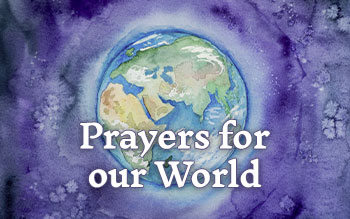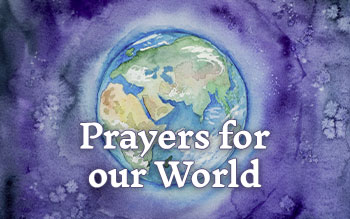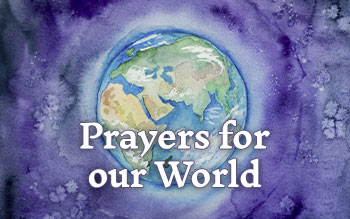
Displaying items by tag: famine
'Only God can save us': Yemeni children starve as aid is held at border
Iona Craig in Aden, Sana’a, Taiz and Hodeidah
Abdulaziz al-Husseinya lies skeletal and appears lifeless in a hospital in Yemen’s western port city of Hodeidah. At the age of nine, he weighs less than one and a half stone, and is one of hundreds of thousands of children in the country suffering from acute malnutrition.
Seven million people are on the brink of famine in war-torn Yemen, which was already in the grip of the world’s worst cholera outbreak when coalition forces led by Saudi Arabia tightened its blockade on the country last week, stemming vital aid flows.
Al-Thawra hospital, where Abdulaziz is being treated, is reeling under the pressure of more than two years of conflict between the Saudi-led coalition and Iranian-allied Houthi rebels. Its corridors are packed, with patients now coming from five surrounding governorates to wait elbow-to-elbow for treatment.
Less than 45% of the country’s medical facilities are still operating – most have closed due to fighting or a lack of funds, or have been bombed by coalition airstrikes. As a result, Al-Thawra is treating some 2,500 people a day, compared to 700 before the conflict escalated in March 2015.
More than 200 miles away in the southern governorate of Lahij, territory under the control of the coalition, more emaciated children lie listless, gasping for every breath.
These scenes are replicated in therapeutic feeding centres in the capital, Sana’a, and at the heart of the conflict-ravaged city of Taiz. There in the shadows of a single incandescent bulb, what appears to be a blanket bundled into a dark corner is in fact three-month-old Elias Basem, who has spent 20 days of his short life being treated for severe malnutrition.
Aid agencies are now warning that Yemen’s already catastrophic humanitarian crisis could soon become a “nightmare scenario” if Saudi Arabia does not ease the blockade of the country’s land, sea and air ports – a move that the kingdom insists is necessary after Houthi rebels fired a ballistic missile towards Riyadh’s international airport this month.
United Nations humanitarian flights have been cancelled for the past week and the International Committee of the Red Cross (ICRC), along with Médecins Sans Frontières (MSF), have been prevented from flying vital medical assistance into the country. More than 20 million Yemenis – over 70% of the population – are in need of humanitarian assistance that is being blocked.
Following international pressure, the major ports of Aden and Mukalla were reopened last week for commercial traffic and food supplies, along with land border crossings to neighbouring Oman and Saudi Arabia, but humanitarian aid and aid agency workers remained barred from entering the country on Sunday. UN aid chief Mark Lowcock has said if the restrictions remain, Yemen will face “the largest famine the world has seen for many decades, with millions of victims”.
The conflict in Yemen is between Houthi rebels controlling the capital Sana’a, who are allied with former president Ali Abdullah Saleh, and forces loyal to another president, the ousted Abd-Rabbu Mansour Hadi. Since 2015, Saudi Arabia has led a military intervention to counter the advance of the Iran-allied Houthis, with the ultimate aim of reinstating Hadi.
With regional tensions between Iran and Saudi Arabia escalating, Yemen is trapped in the middle of a proxy war in addition to its own internal power struggle. The UK has also been criticised for selling arms to Saudi Arabia despite the high casualty rate of its US-backed airstrikes in Yemen.
In Aden, where Hadi and his government ostensibly rule, parents and children from surrounding governorates crowd the feeding centre in Al-Sadaqa hospital. Aisha was 21 months old but weighed just 7lbs – half the healthy weight of a baby her age – when she arrived at the hospital, her second admission in three months. Across the corridor, two-year-old Shohud Hussein, weighing 11lbs, stares vacuously into the middle distance. “Hungry children don’t smile. She’s been here a whole month and hasn’t smiled,” said Dr Aida al-Sadeeq.
In Sana’a, Nor Rashid sold her family’s cow to pay for the transport costs to get her four-year-old daughter, who weighs 16lbs, to the city’s feeding centre in Al-Sabaeen hospital. She has other children who are also sick but she cannot afford to pay for the medical care if she brings them in for treatment too. “It’s because of the lack of government wages,” she said. “Usually we go to the person in the village with a wage to ask for help and borrow money if someone needs to go to the hospital. But since the wages stopped we have no support.”
In Al-Thawra, employees grab the sleeve of the hospital’s director, Dr Khaled Suhail, begging him for money as he navigates the teeming therapeutic feeding centre for malnourished children. Government salaries have gone unpaid for more than a year, and the hospital now runs on the goodwill of its doctors, nurses and administrative staff. Suhail clutches the hand of an elderly maintenance man in charge of the hospital’s oxygen tanks as he pleads for cash. “If I had anything to give you, you know I would. But there is nothing,” he says.
Saudi officials have repeatedly claimed that there is no hunger crisis in southern Yemen, where local forces backed by the United Arab Emirates, a coalition partner, largely hold power. According the Famine Early Warning Systems Network, however, Lahij is the most food-insecure governorate in the country. It is ranked at level four, while level five denotes full-blown famine.
In the markets of both Hodeidah and Lahij, food is plentiful. Stalls bulge with fresh fruit and vegetables and traders offer sacks of flour and beans. The only shortage is the customers, who cannot afford to eat. In Hodeidah, the price of a 50kg bag of flour has risen from a pre-war 5,500 Yemeni rial to 7,600 YR. “Fruit and vegetables are a luxury like meat used to be,” said Arafat Zayed, who came to buy three kilos of flour, when he would have bought 50 to feed his family of five children before the war.
How did the conflict in Yemen begin?
The war in Yemen began in March 2015 when Saudi Arabia launched Operation Decisive Storm, but the prospect of conflict had been building for months. Yemenis overthrew longtime strongman Ali Abdullah Saleh in an uprising that began in 2011, but Saleh remained an influential figure operating behind the scenes. A failed transition sponsored by the US and Gulf states saw the rise of Abed Rabbu Mansour Hadi, who became president after Saleh. Hadi was overthrown by the Houthis, Shia rebels from the north that the Saudis accused of receiving Iranian backing. Saudi Arabia sees the war as part of a regional struggle for power with its rival Iran.
In addition to the hunger crisis, Yemen has seen the worst cholera outbreak ever recorded, with more than 900,000 suspected cases and over 2,190 deaths. Although numbers keep rising, in September the rate of infection began to ease, largely due to the response by aid agencies who set up cholera treatment centres in towns and cities around the country.
But the advances could be short-lived if restrictions on aid continue. “If the closure is not stopped in the coming days, we may see that the progress is stopped,” said the World Health Organisation’s spokeswoman in Geneva last week. A Red Cross shipment of chlorine tablets, used for the prevention of cholera, remained stuck for the fifth day on Sunday on the Saudi side of the border with Yemen.
Without the free cholera treatment and essential humanitarian aid, international agencies warn that many more Yemeni children like Abdulaziz will suffer.
“We are weak, our children are weak and we have nothing left to give. We can’t even feed our animals anymore” said Nor Rashid as she cradled her daughter. “Only God can save us now.”
For a video overview of Yemen and its needs visit: http://prayercast.com/yemen.html
Saudi Arabia recently reopened two key ports in Yemen. That won’t prevent a famine
For the past few weeks, Saudi Arabia has made it almost impossible to get food to Yemen, one of the poorest countries in the world. Yemen became an independent state in 1990, after gaining its sovereignty from The United Kingdom. The population of Yemen is 24,771,809 (2012). Yemen shares land borders with 2 countries: Saudi Arabia and Oman.
Yemen has been tiptoeing toward famine for the better part of three years. It's a man-made crisis born of immense political instability. (The country has been divided into pieces by warring factions backed by Saudi Arabia and Iran. Terrorist groups such as al-Qaeda control portions of land, too.) And it has been made worse by climate change, rendering a dry and arid country nearly devoid of usable land and clean water.
Eighty percent of the country's population lacks reliable access to food. (That includes around 11 million children; kids under 18 make up around half of the population.) Seven million people, one out of every four Yemenis, are entirely dependent on food assistance. The United Nations has called it the “worst humanitarian crisis in the world.”
Save the Children predicts that 50,000 Yemeni children under 5 will die by year end. That's a toddler dead every 10 minutes.
Yemen is on the brink of a horrible famine. Here’s how things got so bad.
For years, Saudi Arabia has played a dark role in Yemen's suffering. It backs the country's exiled government and has dropped thousands of bombs on military and civilian targets (including schools and hospitals) controlled by the Houthi rebels. (The United States has provided funding, logistical support and arms for this effort.) Nearly 10,000 Yemenis have been killed in the bombings.
In early November, things got worse. After the Houthis launched a missile into Saudi Arabia, the country retaliated with a near-total blockade of Yemen's seaports, airports and highways. This meant that aid groups could not ship in clean water, vital medication and food. Yemen imports at least 80 percent of its food, and the blockade pushed those 7 million people dependent on food assistance to the brink of famine.
Humanitarian groups condemned Saudi Arabia's action as inhumane. “I don't think there's any question the Saudi-led coalition, along with the Houthis and all of those involved, are using food as a weapon of war,” David Beasley, head of the United Nations' World Food Program, told CBS. “It's disgraceful.”
Finally, it seemed, there was a drop of good news. Last week, Saudi Arabia announced that it would partially lift its blockade, reopening airports and seaports controlled by its allies. Today, the Saudi-led coalition said it would allow aid deliveries to the rebel-held port of Hodeidah and Sanaa airport. That decision was set to kick in at noon Thursday. Jan Egeland, head of the Norwegian Refugee Council, wrote on Twitter that it was a “glimmer of hope.”
But aid groups say this new move, on its own, will do little to stem the impending crisis.
That's because aid groups alone simply can't get enough food, water and medicine into Yemen fast enough to feed and help the millions of people who need it. To stem a famine, USAID says, Yemen needs “large-scale imports of essential goods.” That means commercial shipments, not just supplies from the United Nations, which must go through rigorous inspections that slow delivery.
Yemenis need fuel, too, to power the water pumps that clean the country's water. Without it, diseases are spreading rapidly. Right now, the country is experiencing the worst cholera outbreak in history. Nearly 1 million people have been infected.
In a statement, International Rescue Committee Yemen country director Paolo Cernuschi explained that Saudi Arabia's latest effort isn't nearly enough.
“Even though tomorrow's reopening of ports to humanitarian traffic will ease the flow of aid, it will still leave the population of Yemen in a worse situation than they were two weeks ago before the blockade started,” he said. “Humanitarian aid alone cannot meet the needs of Yemenis who are unjustly bearing the brunt of this war. Access by commercial shipments of food and fuel must be resumed immediately, otherwise this action will do little to turn Yemen back from the brink of famine and crisis.”
The international community has also called on the United States to do more to end the Saudi blockade. But so far, the Trump administration has declined to publicly condemn the country's actions.
For a video overview of Yemen and its needs visit: http://prayercast.com/yemen.html
SPOTLIGHT: Critical situation in Yemen
We are focusing a special spotlight this month on the very needy Middle East country of Yemen. We would encourage our prayer partners to join with us as we intercede for the complex situation there.
Yemen, the birthplace of algebra, has a long history of trade in frankincense and myrrh and now makes most of its revenue exporting oil products. Yet it is sadly the poorest Arab nation and is currently facing the world’s largest humanitarian crisis. Decades of war and unrest have torn this nation apart, leaving it crippled by long-standing social, political, and economic instability.
Civilians have borne the brunt of the violence and suffering caused by the unravelling turmoil of civil war since 2012. This has left 80% of the population in need of some form of humanitarian assistance. Yemen’s hunger crisis is one of the worst in the world. Yemeni’s have also endured the devastation of widespread diseases such as cholera. With only 45% of hospitals functional, medications in short supply, and little to no clean drinking water, diseases that should be preventable and treatable have claimed the lives of thousands. The nation’s immense water shortage has only been made worse by the widespread use of the country’s most popular narcotic, qat, which demands approximately 40% of the nation’s supply. Terrorist and militant groups like Al-Qaeda, Islamic State, and the Houthis have taken advantage of the chaos and human suffering to gain territory and momentum.
- Pray for peace and for terrorist and militant groups to be disarmed.
- Pray for sufficient famine relief and medical aid to access all areas of the population in need.
- Pray for the Gospel to go forth in power despite current legal restrictions.
- Pray for freedom from the narcotic 'qat' that holds 80% of Yemeni adult’s captive.
- Pray for the desperate economic situation to ignite a longing for lasting hope and security.
For a video overview of Yemen and its needs visit: http://prayercast.com/yemen.html
East Africa: starvation in refugee camps
Famine continues, and refugee camps in Kenya and Uganda continue to fill. Church leaders in Uganda, Kenya and South Sudan have launched another desperate appeal for food aid to keep refugees and churchgoers alive until Christmas, after enduring an 18-month-long period of droughts, famine and conflict. Archbishop Stanley Ntagali of Uganda said, ‘The numbers and the need are overwhelming. I appeal to you all to help us so that we can help these helpless people, the refugees from South Sudan.’ The refugees, having fled famine and conflict in their homeland, are now living in Camp Rhino, northern Uganda. Most of their food aid is provided by Barnabas Fund, working through the Church of Uganda. Every day, 300 refugees from South Sudan arrive in the camp. The numbers have risen to 120,000, and are predicted to go even higher. A large proportion are women and children.
East Africa: food crisis
A missionary helping the 24 million people in East Africa dying of starvation has criticised the media for being so ‘distracted’ by Donald Trump that they're failing to notice the worst humanitarian crisis to hit the region since World War 2. Aid worker Paul Healy says that in his twenty years working with Trócaire, a charity set up by the Irish Catholic Church, he's never seen such devastation. ‘The scale of the crisis is enormous. There are 24 million people facing starvation over the coming months,’ he said. The UN has already declared a fully-fledged famine in parts of South Sudan, adding: ‘This means 20% of households face extreme food shortages, 30% of the population face acute malnourishment and there are 2 hunger-related deaths per 10,000 people per day.’. Also Somalia, Kenya and Ethiopia will suffer mass death from food and water shortages if ‘prompt and sustained humanitarian intervention’ doesn't happen soon.
Global: 20 million close to starvation
In February Prayer Alert readers were told of 1.4 million children at risk of starvation in Yemen, South Sudan, Somalia, and northeast Nigeria. The crisis has worsened. Millions of people are caught in conflicts within their countries. Livelihoods are disrupted, and they cannot produce food. This is a God-sized situation that requires intercession and His intervention. The UN needs $4.4 billion by July to prevent famine in these countries. An official said the organisation is facing its largest humanitarian crisis since its creation. Without the funding and collective and coordinated global efforts, people will simply starve to death. Yemen's needs are the most critical: two-thirds of the population (19 million) need assistance. In South Sudan, 7.5 million need help. In Somalia and northeastern Nigeria there is also severe food insecurity because of violence and instability. See also
Middle East: seismic shifts and fresh persecution
The fighting in Syria grows more complex as Turkey aims to interrupt the line of territory held by Kurdish forces along its border and the US works with the Kurds to prevent battle escalation and focus on IS. Pray for this tense situation where Turkish and US goals are in disagreement. Pray also for the third round of peace talks sponsored by Russia and Turkey that began on 14 March. In Iraq, the campaign to retake Mosul from IS progresses despite fierce resistance. Iraqi commanders are hopeful they can overcome IS within six months. Many civilians have been prevented from fleeing by IS, and horrific sites of mass burials have been uncovered in captured areas. Pray for the future for Mosul, for peace-building and reconstruction to be given as much thought as the current military campaign. The two-year conflict in Yemen has killed 7,700 people, including 1,500 children. The fallout is that over 18 million people need food aid.
South Sudan bishops (2): famine ‘man-made’
South Sudan’s Catholic bishops have issued a pastoral letter condemning the civil war and labelling the famine ‘man-made’. The document responds to reports from all seven dioceses. They denounce government and opposition violence against civilians. ‘The killing, torturing and raping of civilians is a war crime. We want the world to hear the true situation in which our people find themselves. Our country is gripped by a humanitarian crisis - famine, economic hardship, and insecurity. Our people are struggling simply to survive.’ The bishops tell how people have been herded into their houses which were then set on fire, and recount atrocities of bodies dumped in sewage-filled septic tanks. They said, ‘People live in fear. While food shortages are partly related to poor rains, it is violence and a plummeting economy that are pushing the population over the edge into famine’.
Global: 1.4 million children at risk of starvation
It has been six years since the world had a famine, but now UNICEF report that nearly 1.4 million children are at ‘imminent risk’ of death from famines in Nigeria, Somalia, South Sudan and Yemen. The World Food Programme says over 20 million lives are at risk in the next six months. Time is running out. Famine was formally declared on Monday in parts of South Sudan, mired in civil war since 2013. The conflict has split the country along ethnic lines, leading the UN to warn of potential genocide. South Sudan has also been hit by the same east African drought as Somalia, where six years ago 260,000 people starved to death. A World Food Programme report said, ‘By 2050, climate change and erratic weather patterns will have pushed another 24 million children into hunger. Almost half of these children will live in sub-Saharan Africa.









